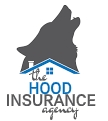
Are you a homeowner in Washington State looking for the right insurance coverage to protect your investment? Navigating the world of home insurance can be daunting, but asking the right questions can help you make informed decisions and ensure that you have adequate coverage when you need it most. Here are some essential questions to ask when shopping for home insurance in Washington State.
1. Do I Have To Buy Homeowners Insurance in Washington State?
While Washington State doesn’t legally require homeowners to have insurance, if you have a mortgage, your lender will likely require it to protect their investment. Even if you own your home outright, having insurance can provide crucial financial protection against unexpected disasters like fires or storms. Consider the peace of mind knowing that your home and belongings are protected, regardless of unforeseen circumstances.
2. What Perils Does A Standard Homeowners Insurance Policy Cover in Washington State?
A standard homeowners insurance policy in Washington typically covers perils such as fire, lightning, windstorms, hail, smoke damage, vandalism, and theft. However, it’s essential to review your policy carefully to understand the specific coverage limits and exclusions. Knowing exactly what is covered can help you make informed decisions about your insurance needs.
3. What About Damage Caused By Earthquakes or Flooding in Washington State?
Earthquakes and flooding are not covered by standard homeowners insurance policies in Washington State. Given the region’s proximity to fault lines and bodies of water, residents in high-risk areas may need to purchase separate earthquake or flood insurance policies to protect against these specific perils. Don’t wait until it’s too late – secure additional coverage to safeguard your home and belongings against natural disasters.
4. What Does Liability Coverage Mean for Washington State Homeowners?
Liability coverage protects you if someone is injured on your property and files a claim against you. It also provides coverage if you or a family member accidentally damage someone else’s property. Liability coverage is an essential component of homeowners insurance in Washington State, providing financial protection and peace of mind in the event of unforeseen accidents or injuries.
5. What Is Additional Living Expenses (ALE) Coverage and How Does It Apply in Washington State?
Additional Living Expenses (ALE) coverage reimburses you for expenses incurred if your home becomes uninhabitable due to covered damage. This coverage can help cover temporary housing, meals, and other expenses while your home is being repaired or rebuilt. With the unpredictable nature of disasters, having ALE coverage can provide essential financial assistance during challenging times.
6. Is It OK To Settle For Basic Home Insurance Coverage in Washington State?
While basic coverage may meet the minimum requirements, it’s important to consider whether it provides adequate protection for your home and belongings. Investing in comprehensive coverage can provide greater peace of mind and financial security in the event of a disaster. Don’t compromise on the safety and security of your home – explore comprehensive coverage options tailored to your specific needs.
7. Will I Pay Less For Homeowners Insurance in Washington State If My Home Is Old?
In general, older homes may be more expensive to insure due to the increased risk of structural issues and outdated systems. However, factors such as the home’s location, construction materials, and mitigation measures can also impact insurance premiums in Washington State. Consult with your insurance provider to explore potential discounts or mitigation strategies to help reduce insurance costs for your older home.
8. Does Homeowners Insurance Cover My Backyard Shed and Other Structures in Washington State?
Standard homeowners insurance policies typically provide coverage for detached structures on your property, such as sheds, garages, and fences. However, coverage limits may vary, so it’s essential to review your policy and consider any additional endorsements or riders for comprehensive protection. Protect all aspects of your property with tailored coverage options for your outdoor structures.
9. If I Sell My House in Washington State, What Happens To My Policy?
When you sell your house in Washington State, your homeowners insurance policy typically ends with the transfer of ownership. It’s essential to notify your insurance provider and arrange for coverage on your new property if necessary. Additionally, consider updating your policy to reflect any changes in coverage needs or property details to ensure continuous protection for your investment.
10. How Is Your Insurance Company Doing Financially in Washington State?
Before purchasing a homeowners insurance policy in Washington State, it’s important to research the financial stability and reputation of the insurance company. The National Association of Insurance Commissioners (NAIC) Consumer Information Source provides valuable information to help you make an informed decision. Ensure that your insurance provider is financially sound and capable of fulfilling their obligations in the event of a claim.

